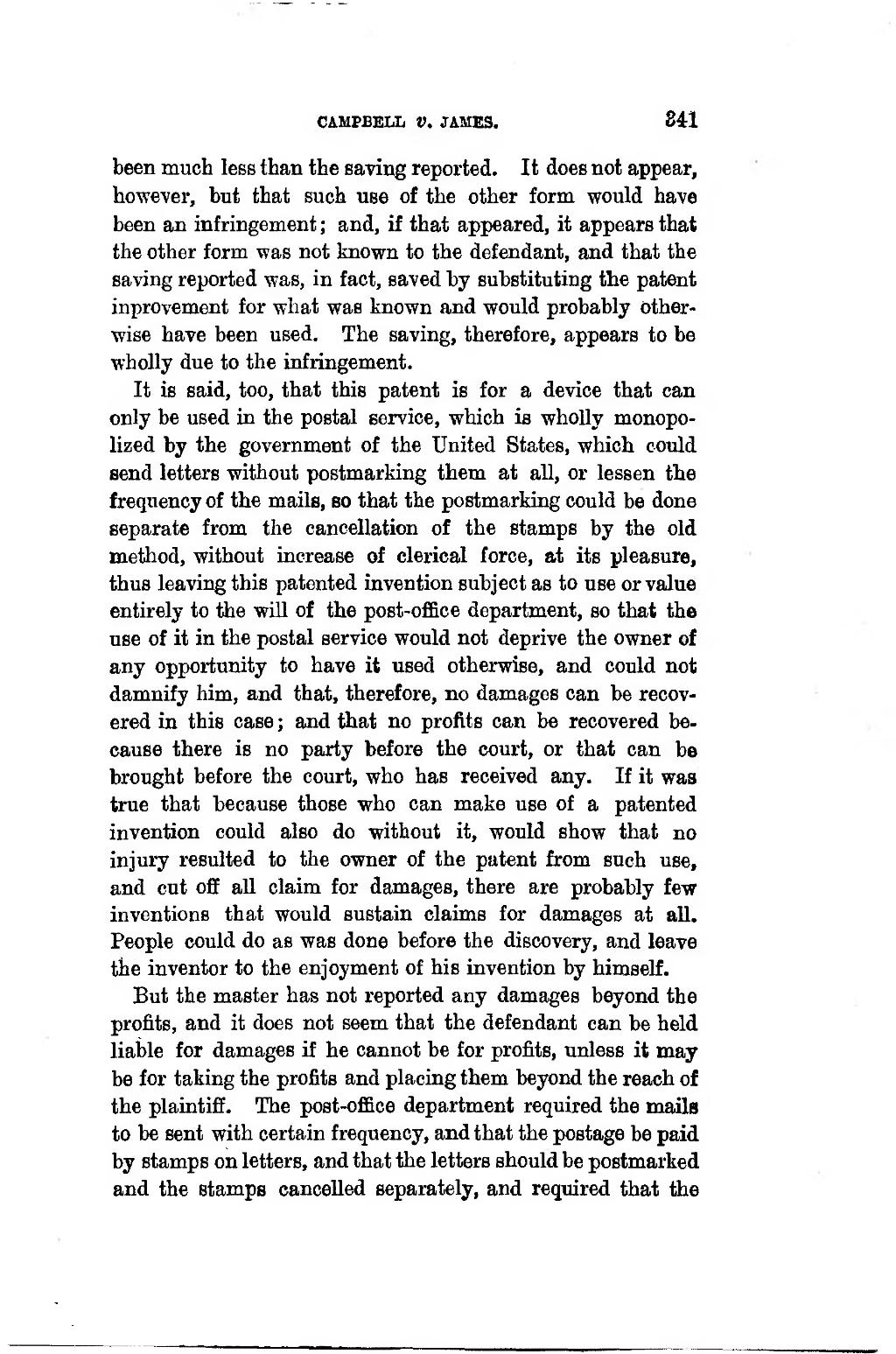CAMPBELL V. JAMES. 341 �been much less than the saving reported. It does not appear, however, but that such use of the other form would have been an infringement ; and, if that appeared, it appearsthat the other form was not known to the defendant, and that the saving reported was, in f act, saved by substituting the patent inprovement for -what was known and would probably other- wise baye been used. The saving, therefore, appears to be wholly due to the infringement. �It is said, too, that this patent is for a device that can only be used in the postal service, which is wholly monopo- lized by the government of the United States, which could send letters without postmarking them at ail, or lessen the freqnency of the mails, bo that the postmarking could be done separate from the caneellation of the stamps by the old method, without inerease of clerical force, at its pleasure, thus leaving this patented invention suhject as to use or value entirely to the will of the post-office department, so that the use of it in the postal service would not deprive the owner of any opportunity to have it used otherwise, and could not damnify him, and that, therefore, no damages can be recov- ered in this case ; and that no profits can be recovered be- cause there is no party before the court, or that can be brought before the court, who has received any. If it waa true that because those who can make use of a patented invention could also do without it, would show that no injury resulted to the owner of the patent from such use, and eut off ail claim for damages, there are probably few inventions that would sustain claims for damages at ail. People could do as was done before the discovery, and leave the inventer to the enjoyment of his invention by himself. �But the master has not reported any damages beyond the profits, and it does not seem that the defendant can be held liable for damages if be cannot be for profits, unless it may be for taking the profits and placing them beyond the reach of the plaintiff. The post-of&ce department required the mails to be sent with certain frequency, and that the postage be paid by stamps on letters, and that the letters should be postmarked and the stamps cancelled separately, and required that the ����
